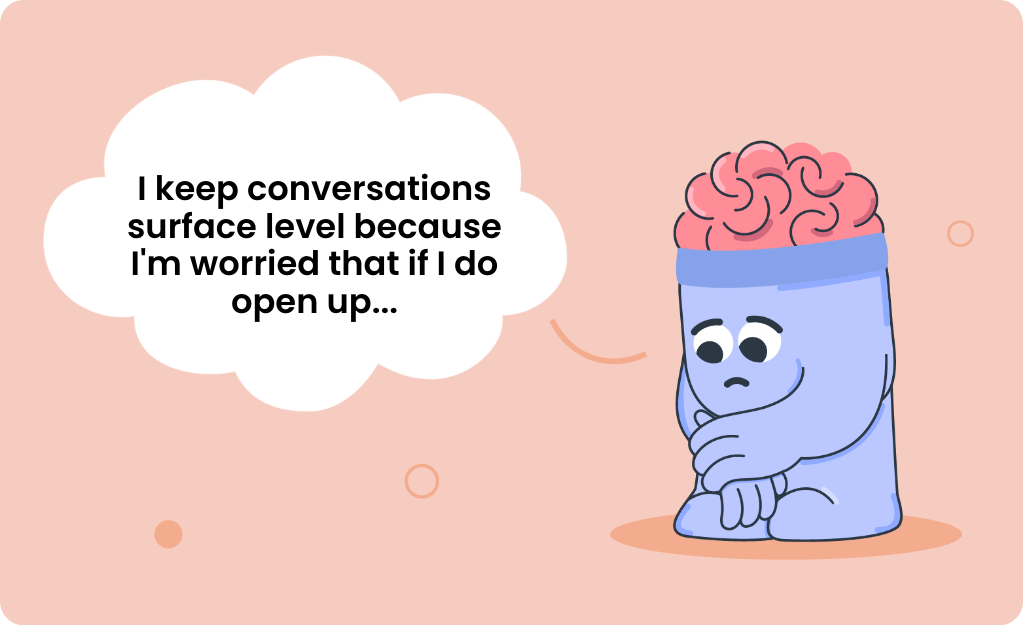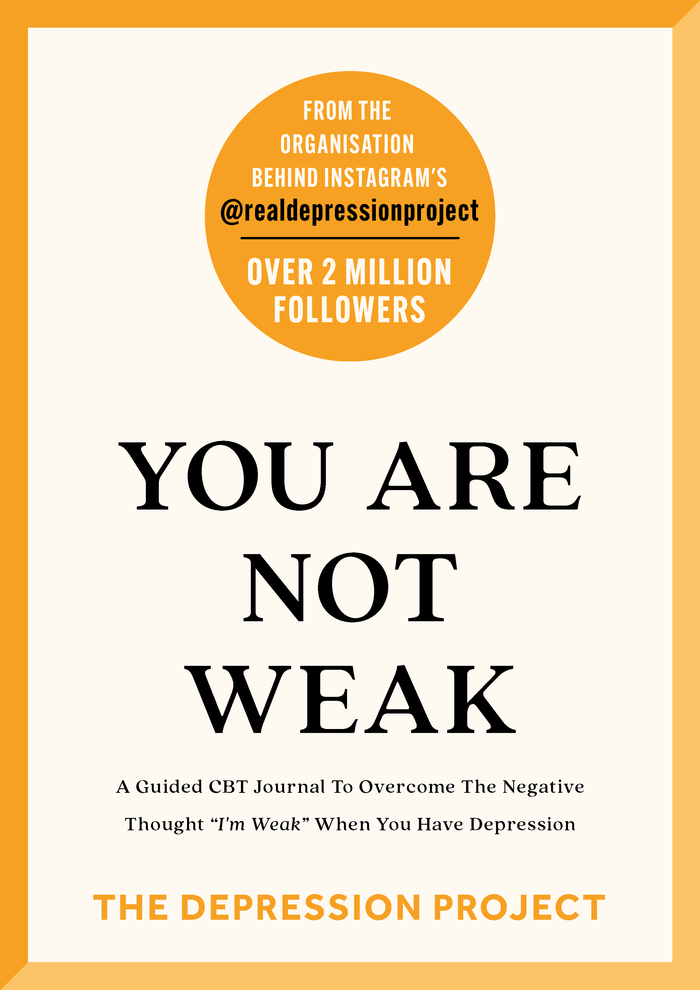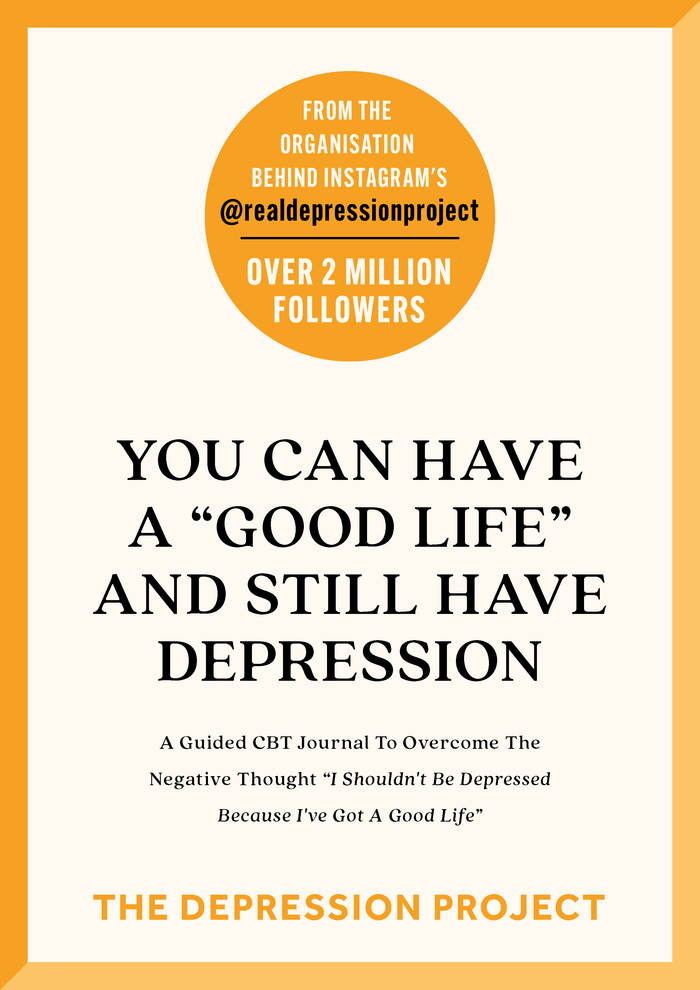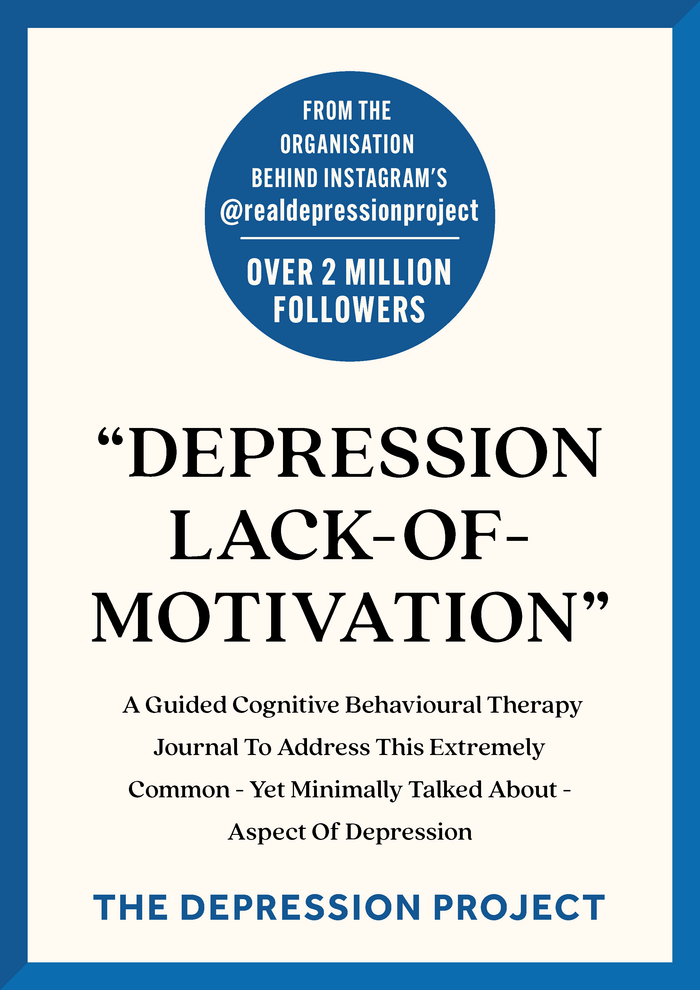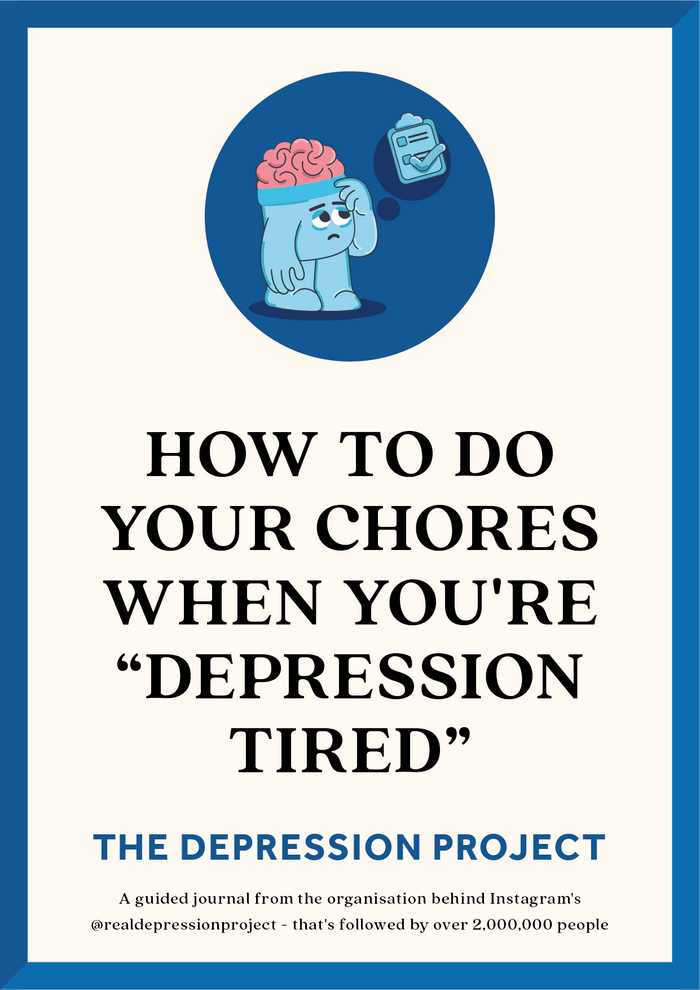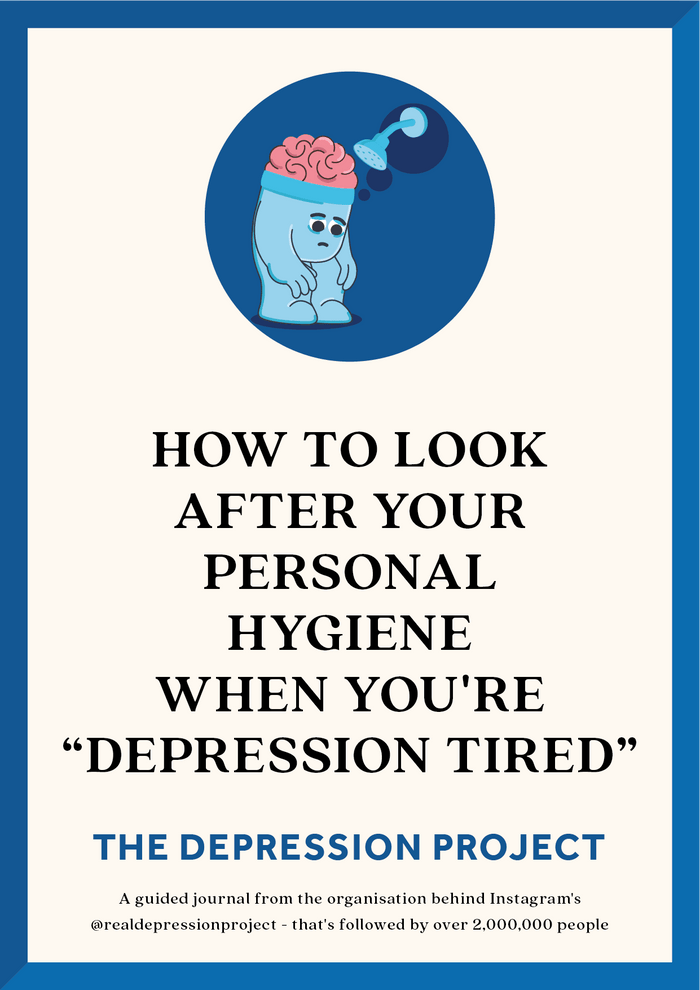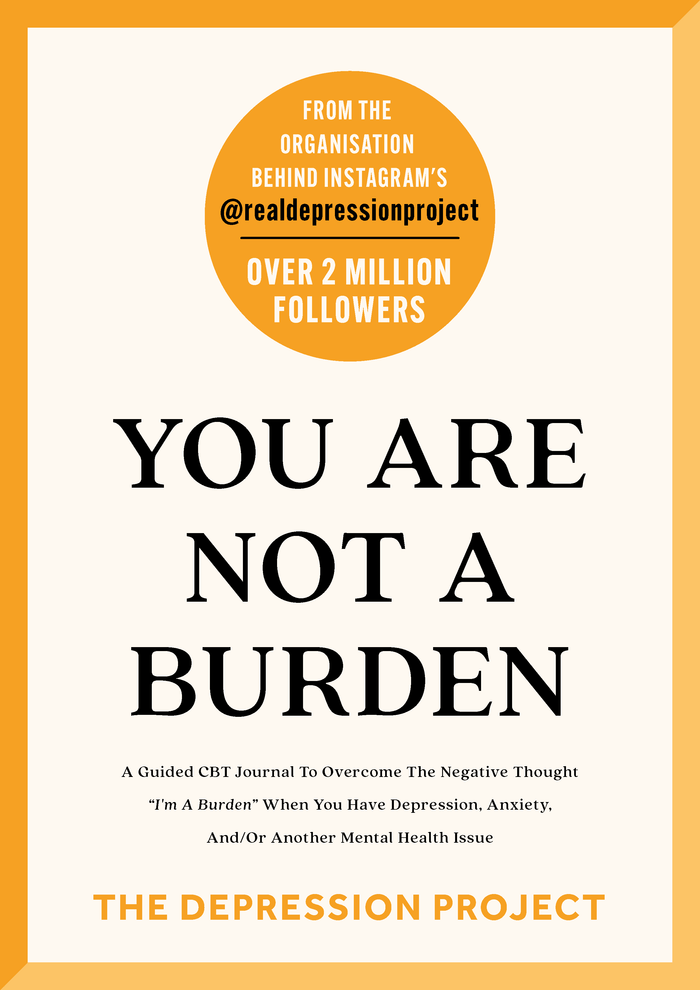- Quotes about the most common ways in which people mask / hide their depression;
- Signs of masked / hidden depression;
- An explanation of the most common reasons why people mask / hide their depression;
- Several resources to - if you have depression - help you feel more comfortable being open and transparent about it as opposed to masking / hiding it;
- A few suggestions for how to reach out to someone who you think may be struggling with depression but is hiding / masking it.
As soon as you're ready, let's begin!
Quotes About How People Mask / Hide Their Depression
A little while ago, we asked our 1,000,000+ person Facebook community:
In what ways do you hide / mask your depression?
And, right now, we'd like to share some of the most common responses with you:
- "I avoid other people, and then when they ask me about it, I just say that I was really 'tired' or 'busy'."
- "I got good at faking being OK. Even if I was feeling half-dead and suicidal, I could smile and go around and do things as if every breath didn't hurt. And then when I'd finally be by myself, I wouldn't even be able to get up."
- "I wear a very good poker face. I try to make others laugh and I try and put thought into others, because I know what it’s like to feel so depressed."
- "Alcohol, humour, working excessively, isolating from others or simply smiling ... there are so many ways to hide depression."
- "My answer to 'how are you?' is always 'I'm fine' - regardless of how depressed I really feel."
- "Disengaging / disconnecting with everyone is a big one, because if nobody is around, then nobody can see or know how bad things really are."
- "Smile and say you’re fine. Or my usual - go ghost for as long as it takes and say I was sick or busy."
- "I resort to humour when I'm with people, and I avoid people when I can so that I don’t always have to constantly pretend."
- "Being hyper-focused on solving other people’s problems so that there's never any focus on my own."
- "I smile and keep conversations light, because I know that if they get too heavy and close to my pain, that it will become harder and harder for me to keep my 'happy mask' on."
- "Humour - particularly dark humour. Some of the emptiest people are the funniest."
- "I resort to communicating by phone when I'm in a depressive episode, because it's easier to hide your struggle online than it is face-to-face. Also, I post happy pictures on social media that makes out as if everything's OK when it's not."
Signs Of Masked / Hidden Depression
While it isn’t possible to be 100% sure that somebody is masking / hiding their depression, there are several “signs” that indicate that this may be the case. In particular, according to members of The Depression Project’s community, these signs include:
- Changes in behaviour that are commensurate with depression and its symptoms – such as, for example, feeling much more exhausted than usual, much more overwhelmed than usual, being much less social than usual, struggling to think clearly and function, being snappy and irritable, making dark jokes and/or comments, eating much more (or much less) than usual, drinking more alcohol than usual, a loss of interest in hobbies, etcetera;
- Explaining away one or more of depression’s symptoms (e.g. feeling exhausted, feeling snappy and irritate, struggling to think clearly and function, etcetera) by saying “I’m tired”;
- Explaining away social withdrawal by vaguely saying “I’ve just been busy”;
- Smiling with one’s mouth by not with their eyes.
Reasons Why People Mask / Hide Their Depression
Sadly, there are many, many reasons why someone may feel the urge to mask / hide their depression. In particular, we've included some of the most common reasons below - all of which are frequently told to us by members of The Depression Project's community.
- It's extremely common for people with depression to not know how to put what they're going through into words, and to find it difficult to explain their struggle to the people they love.
- People with depression often feel ashamed that they have depression (for example, because they think that having depression means that they're "weak"; and/or because they feel that they have a "good life" and therefore "no reason to be depressed").
- They may feel shame over the consequences of their depression - such as in the common cases of, for example, feeling so "depression tired" that they're unable to, for example, get out of bed, look after their personal hygiene and/or do their chores.
- They may feel unworthy of their loved ones' help and support - which can be the case if, for example, they struggle with feelings of worthlessness and low self-esteem (like many, many people with depression do).
- They may be scared of becoming a "burden" to their loved ones, "bringing their mood down", "ruining their good time", and/or making their loved ones "worried about them".
- They may be worried that they'll be judged, criticised and/or misunderstood (which is an experience that sadly, many, many people with depression can unfortunately relate to).
- They may be sick and tired of being force-fed overly-simplistic advice about how to treat their depression (most of which tends to imply that depression has a "quick fix" when it doesn't).
- They may want to maintain the perception that other people have of them - such as in the cases where they're known to others as being, for example, the "funny one", the "strong one who's always there for everybody else", or the "successful one who's got their life all-together").
Resources To Help You Feel More Comfortable Being Open And Transparent About Your Depression As Opposed To Masking / Hiding It
If you can relate to one or more of the above "reasons why people may mask / hide their depression", then we'd now like to share a number of resources that can help you feel more comfortable being more open and transparent about your depression instead.
- If you're not sure how to put your depression into words and explain what you're going through to your loved ones, then we recommend our How To Explain Depression Bootcamp - which is one of the many Bootcamps part of our Depression Bootcamps Membership Platform.
- If you feel ashamed that you have depression because you think it means that you're "weak", then we recommend our cognitive behavioural therapy-based journal You Are Not Weak.
- If you feel ashamed that you have depression because you feel as if you have a "good life" and therefore "no reason to be depressed", then we recommend our cognitive behavioural therapy-based journal You Can Have A "Good Life" And Still Have Depression.
- If you feel shame over the "consequences of your depression", then we encourage you to read our blog post titled The Biggest Causes Of "Depression Shame" And How To Overcome Them. Additionally, you may also find the following cognitive behavioural therapy-based journals helpful as well: The "Depression Lack-Of-Motivation" Journal; How To Do Your Chores When You're "Depression Tired"; and How To Look After Your Personal Hygiene When You're "Depression Tired".
- If you're scared of being a "burden", then we recommend our cognitive behavioural therapy-based journal You Are Not A Burden.
How To Reach Out To Someone Who You Think May Be Struggling With Depression And Be Masking / Hiding It
On the other hand, if you don't have depression yourself, then you may be reading this guide because you know someone who you think may be struggling with depression but be masking / hiding it. In such an instance, it can be really difficult to know how to broach this topic with them - and if you can relate, then we'd now like to offer some suggestions to you.
- Firstly, it's important to note that, according to members of The Depression Project's community, it's common for people to hide their depression until they feel safe enough to show it. Consequently, in order to help them feel "safe enough" to open up to you about their depression, it can really help to check in with them and make sure that they know you care about them. This will help soften any fears they may have about being judged, bothering you and/or being a burden to you, and therefore encourage them to share what they're going through (whether right away, or at some point in the future).
- Secondly, the environment you're in can play a big role in how safe someone may feel to open up about their depression. For example, in a large group context with lots of people around where everyone's laughing and having a good time, they'll likely be more inclined to try to "blend in" and mask / hide their depression with a smile. However, if you're in a much quieter, more private environment that's more conducive to serious conversations, then they may be more likely to open up about their depression.
- Thirdly, when you interact with someone who you think may be masking / hiding how depressed they're feeling, it can help to - if you feel comfortable - "let your own guard down", and share something vulnerable about yourself with them. In turn, this may help to make them feel more comfortable opening up about their depression and the things that they feel vulnerable about. On the other hand, if you keep conversation light-hearted and "surface level", then they may feel more uncomfortable and find it difficult or impossible to completely change the tone of it by broaching a deep and serious subject like their depression.
- Lastly, we encourage you to gently reach out if you think someone may be suffering in silence - even if they don't respond to you (for a list of suggestions about how to do so, please read our blog post titled 50 Ways To Reach Out To Someone Who May Be Suffering In Silence). Even if they don't respond to you for a while, continuing to gently reach out to them can still help them feel loved and supported, and therefore make them much more likely to feel safe enough to open up to you about their depression at some point in the future.
We hope you've found this guide about masked / hidden depression informative ❤️
All our love,
The Depression Project Team.

